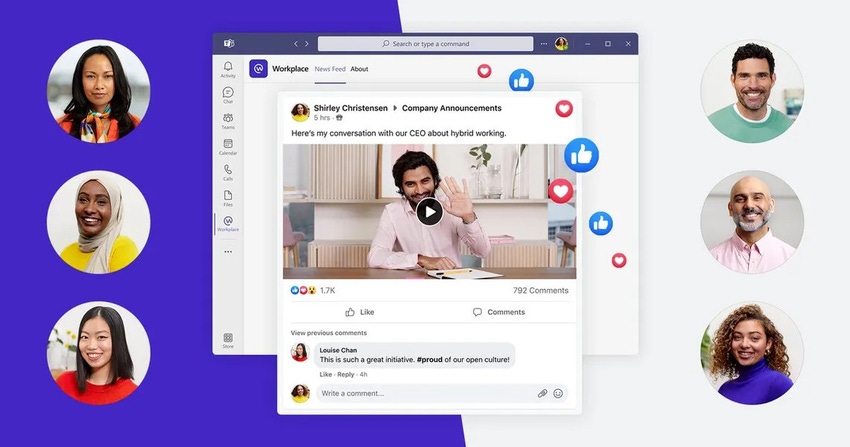Users of Microsoft Teams will be able to directly access Workplace stuff without leaving the app, in a move that will add to concerns over the ubiquity of big tech.
November 11, 2021

Users of Microsoft Teams will be able to directly access Workplace stuff without leaving the app, in a move that will add to concerns over the ubiquity of big tech.
Microsoft has done a good job of getting businesses to use its desktop instant messaging platform for chats and general collaboration. In fact, the claimed number of daily active users has been shooting up suspiciously fast this year. The artist formerly known as Facebook also has a collaboration platform called Workplace, which has far fewer users but is also growing.
Perhaps anxious about ultimately losing out to Teams and other competitors such as Slack, Facebook has decided cozying up to the market leader is the pragmatic move at this time. It may also be telling that in the Workplace blog announcing the move, the prime canned quote was relinquished to Microsoft in a move that smacks of submissiveness.
“One thing I learned from the pandemic is that companies don’t just rely on one tool to get their work done, so it is our responsibility as leaders in the space to make sure the tools they use integrate and interoperate with each other,” said Jeff Teper, CVP Product & Engineering, Microsoft Teams.
“We have a shared vision of offering our customers choice and flexibility, so it made sense for us to come together to help our mutual customers unlock collaboration and break down silos within their organizations.”
“This news deepens the relationship between Microsoft and Meta,” fawns the press release. “Last year, Workplace jointly committed with Microsoft to bring together tools to help our mutual customers securely connect, collaborate and communicate. Joint customers can already integrate Workplace with SharePoint, OneDrive, and the Office 365 suite.”
No doubt this move does make sense for the two companies, and possibly even the users of Teams and Workplace, but it’s also ominous for anyone concerned about the ubiquity and power of Big Tech. Microsoft manages to avoid a lot of the negative coverage and political hysteria because it’s not involved in consumer facing stuff like social media, but it’s still one of the biggest companies in the world and is still ubiquitous in the workplace, appropriately enough.
By getting so close to arguably the most controversial tech company, however, Microsoft runs the danger of publicity and reputational contagion, as the tweets below suggest. The antitrust knives are already out for companies like Facebook, Google and Amazon. By effectively reducing competition in the business collaboration market Microsoft must surely have made itself a more tempting target for the Big Tech trustbusters.
About the Author(s)
You May Also Like








.png?width=300&auto=webp&quality=80&disable=upscale)


_1.jpg?width=300&auto=webp&quality=80&disable=upscale)


.png?width=800&auto=webp&quality=80&disable=upscale)